#aethelstan of england
Explore tagged Tumblr posts
Photo

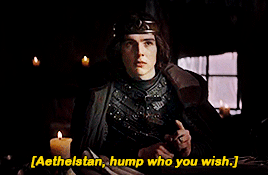

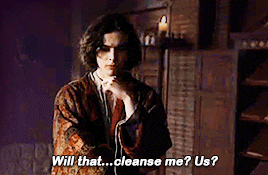



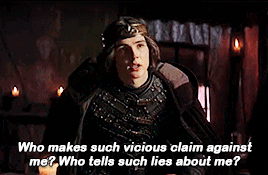
“We know Aethelstan has banished you. And we know he gets humped like a woman. That may be customary to you Pagans, but as a Christian, it cannot be endured.”
↳ aka aethelstan inventing tragic gay catholic guilt in the year 924 AD
#tlkedit#the last kingdom#seven kings must die#aethelstan#perioddramaedit#tlk aethelstan#gifshistorical#perioddramasource#**#tlk#aethelstan of england#top right is me getting called a d*ke in the hallway in middle school and tryna act soooo confused
564 notes
·
View notes
Text



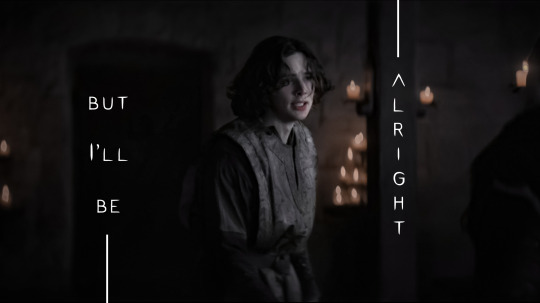

AETHELSTAN & INGILMUNDR (Seven Kings Must Die, 2023)
Death by a Thousand Cuts by Taylor Swift
for @emilyhufflepufftlk 🖤
ㅤㅤㅤ
#ems500#aethelstan#ingilmundr#aethelstan of england#aethelstan x ingilmundr#ingilmundr x aethelstan#the last kingdom#tlk#tlk: edits#seven kings must die#taylor swift#taylor swift edit
114 notes
·
View notes
Text

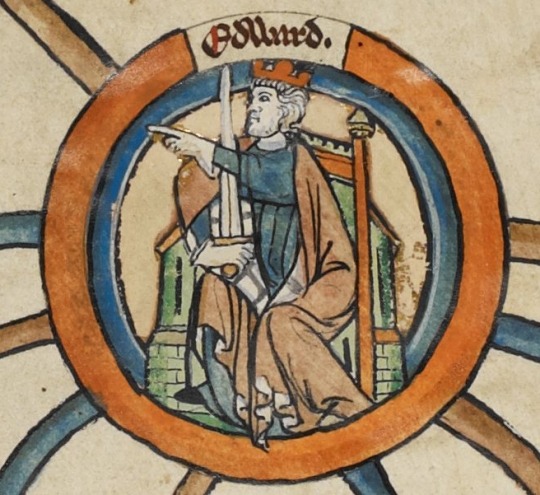
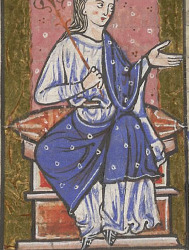

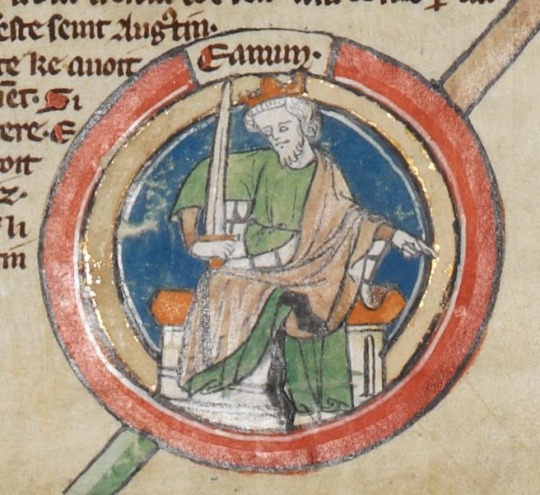





The Bastard Kings and their families
This is series of posts are complementary to this historical parallels post from the JON SNOW FORTNIGHT EVENT, and it's purpouse to discover the lives of medieval bastard kings, and the following posts are meant to collect portraits of those kings and their close relatives.
In many cases it's difficult to find contemporary art of their period, so some of the portrayals are subsequent.
1) Aethelstan I of England (894 – 939), son of Edward the Elder and his wife Ecgwynn
2) Edward the Elder (c. 874 –924), son of Alfred the Great and his wife Ealhswith
3) Æthelflæd of Mercia (c. 870 – 918), daughter of Alfred the Great and his wife Ealhswith
4) Eadgifu of Wessex (? - c. 951), daughter of Edward the Elder and his wife Ælfflæd; and her son with Charles III of France, Louis IV of France (920/921 – 954)
5) Edmund I of England (920/921 – 946), son of Edward the Elder and his wife Eadgifu of Kent
6) Eadwig I "All-Fair" of England (c. 940 – 959), son of Edmund I of England and his wife Ælfgifu of Shaftesbury
7) Edgar I of England (944 – 975), son of Edmund I of England and his wife Ælfgifu of Shaftesbury
8) Eadred I of England (c. 923 – 955), son of Edward the Elder and his wife Eadgifu of Kent
9) Eadburh of Winchester (921/924-951/953), daughter of Edward the Elder and his wife Eadgifu of Kent
10) Eadgyth of England (910–946), daughter of Edward the Elder and his wife Ælfflæd
#jonsnowfortnightevent2023#canonjonsnow#day 10#echoes of the past#asoiaf#a song of ice and fire#historical parallels#medieval bastard kings#bastard kings and their families#aethelstan i of england#aethelstan of england#edward the elder#Æthelflæd#Lady of the Mercians#Eadgifu of Wessex#Louis IV of France#Edith of England#Eadred of England#Edmund I of England#Eadburh of Winchester#Eadwig All-Fair#Edgar of England#aethelflaed of mercia
21 notes
·
View notes
Photo

Battle of Brunanburh
The Battle of Brunanburh, fought in the autumn of 937 at an unknown location, saw the English king, Aethelstan (r. 924-939), defeat a coalition of invading armies led by Constantine II of Scotland (r. 900-943) and Olaf Guthfrithson of Dublin (r. 934-939).
Battle of Brunanburh
Medieval Warfare Magazine / Karwansaray Publishers (Copyright)
The origins of this conflict lay in the breakdown of Britain's established political order, which, since 918, had been divided into three dominant spheres of influence: the English dynasty of Wessex in the south, the Vikings at York, and the Scots in the north. This dynamic collapsed in 927 when Aethelstan conquered York and subdued the rest of northern Britain, effectively bringing the whole of Britain under his own influence. Seeking to free the north from English control, Constantine found a willing ally in Olaf Guthfrithson, the disinherited Viking heir to York. Together, they mustered a formidable coalition of allies intent on crushing English hegemony and restoring York to Viking control.
While Brunanburh's location has been lost to time, contemporaries saw the battle as a vast and beastly clash. The contemporary Anglo-Saxon Chronicle – a collection of annals recorded at the royal court – bemoaned: "Never was there more slaughter on this island" (Livingston, 43). Meanwhile, it was remembered in the Annals of Ulster – a contemporary Irish chronicle – as a "great, lamentable and horrible battle" (Mac Airt & Mac Niocaill, 385). Yet for Aethelstan, Brunanburh was the crowning achievement of his successful reign, legitimising his rule as the first king of a united English realm, and it would ultimately be remembered as one of the great English victories of the Viking Age.
Aethelstan & the House of Wessex
Aethelstan was born in 894, when his grandfather, Alfred the Great (r. 871-899), was at the zenith of his powers. As ruler of the southern Kingdom of Wessex, Alfred won renown amongst his fellow Englishmen for defeating the Vikings in battle and fortifying his kingdom's defences. He and his son, Edward the Elder (r. 899-924), would expand West Saxon power over the Midland Kingdom of Mercia and Danish-held East Anglia. Thus, when Aethelstan came to the throne in 924, he inherited all of England south of the river Humber.
Much like his grandfather, Aethelstan was pious, scholarly, and a capable warrior, having spent his youth fighting the Vikings in the Midlands. One of his first decisions as king in 926 was to seek peace with his greatest rival, the Viking ruler, Sihtric of York (r. 921-927), which was sealed by Sihtric's marriage to Aethelstan's sister and his baptism. Yet, his conversion was insincere; he swiftly renounced Christianity and died the following year.
Aethelstan
Corpus Christi College, Cambridge (Public Domain)
Sihtric's brother and heir, Guthrith of Dublin (r. 921-934), rushed across the Irish Sea to claim his Yorkshire inheritance. Yet, Aethelstan had made his move first, seizing York and proclaiming himself its new master before Guthrith arrived. With York secured, he now looked further north to extend his hegemony, demanding the submission of several northern kings. Thus, at Eamont Bridge, near Penrith, Cumbria, in the summer of 927, the rulers of Scotland, Strathclyde, and Bamburgh (Northumberland) knelt before the English king, offering him oaths of loyalty and friendship. For good reason, Aethelstan's followers called him "the thunderbolt;" in just three short years, he had brought northern England to heel, making himself the first king of a united England (Foot, 188). Moreover, his supremacy over his Celtic neighbours prompted him to take a new and more ambitious title, "King of all Britain."
Continue reading...
37 notes
·
View notes
Text

Photo: Statue of Aethelflaed, Lady of the Mercians, who passed away in 918. Her nephew Aethelstan, future king of all England, looks up at her.
"Aethelflaed was one of three daughters of Alfred the Great, and her name meant "noble beauty". She married Aethelraed of Mercia at some point during the 880s and while this union meant a strong alliance between Wessex and Mercia the pair embarked on a "Mercian revival" with the city of Worcester at its centre.
When Aethelraed died in 911 after years of ill-health Aethelflaed remained as Lady of Mercia and held this position until her death, making her the only female ruler of a kingdom during the entire Anglo-Saxon era. The only compromise she made was to agree to her brother Edward, now king of Wessex, taking some of Mercia's southern lands under his control.
Their father Alfred the Great had fortified dozens of Wessex towns as "burhs" and Edward continued this work, connecting his burhs with those in Mercia to represent a united front against viking incursions, and it wasn't long before this was put to the test.
A force of vikings, pushed out of Ireland, landed in the mouth of the Dee after unsuccessfully trying to take land in Wales, and asked Aethelflaed if they could settle for a time outside the old Roman walled town of Chester. Permission was granted but the Norsemen raided and robbed the area at will so Aethelflaed led a force to shut them down. She had Chester fortified and waited for the inevitable viking attack, it came and was repulsed, the Scandinavian chancers sent packing in complete disarray.
This same Norse army was brought to battle at Tettenhall near Wolverhampton where Aethelflaed's forces destroyed them. The writing was now on the wall - the vikings had to go. Together with Edward she raided deep into Danelaw territory on a mission to rescue the bones of St Oswald - who had been killed and ritually dismembered by the pagan king of Mercia Penda - from a church in Lincolnshire then brought the relics down to Gloucestershire where a new church was built to house them...more on that presently.
The burhs continued to be built, and the Dane strongholds fell as Aethelflaed campaigned hard against them. Her forces defeated three Norse armies before finally taking the city of Derby, then Leicester, before the Danes of York came to her to pledge their loyalty. The vikings in Anglia capitulated to Edward and so all of England south of Northumbria was now back under Anglo-Saxon rule.
Aethelflaed died at Tamworth in 918 and so will be forever associated with the town, but she was carried down to Gloucestershire to be buried in the church she had built for St Oswald. Unfortunately the monastery there fell into decline over the centuries, was dissolved in 1536, then almost completely destroyed during the English Civil War. Nobody knows where Aethelflaed's resting place is now, but the ruins of St Oswalds are as good a place as any as a pilgrimage destination for those wishing to follow in the footsteps of the Lady of Mercia." - Source: Hugh Williams via Medieval England on FB.
Photo: Statue of Aethelflaed and Aethelstan at Tamworth Castle, by EG Bramwell, unveiled in 1913.
#Aethelflaed#Lady of the Mercians#Aethelstan#Aethelraed of Mercia#Medieval History#Alfred the Great#Wessex#Mercia#Northrumbria#England#Anglo-Saxon#Tamworth Castle#Statue#Medieval England#Hugh Williams
61 notes
·
View notes
Text


top 10 historical yassifications
118 notes
·
View notes
Text
David Dawson is just the sweetest, I love him!!!!
He told Harry Gilby's mom that he was "proud of his grandson" 😭🥰😭🥰
#david dawson#cyning of wessex and england#still kind of salty that there wasn't an Alfred cameo#just wanted to see my best boy one last time#alfred tlk#king Alfred#aethelstan#harry gilby#seven kings must die
67 notes
·
View notes
Text
Edward: I know you won't swear to me, but swear to my son pretty please? Also if you don't take him and look after him my second wife's father is going to have him killed so I'm glad you agreed to this.
#tlk rewatch#the last kingdom#i always love when they talk about aethelstan bc the writers are so obviously like THIS IS THE FIRST KING OF ENGLAND. but the characters#aren't supposed to know about that yet so they just sound like they're feeling super prophetic today#he's the only character who gets a title card like the locations do
5 notes
·
View notes
Text

3 notes
·
View notes
Text
The Last Kingdom
Officially finished The Last Kingdom and watched Seven Kings Must Die.
This show is incredible truly, great storytelling and an ending I would wish for in regards to Bebbanburg.
I thought the film was good, although the pacing meant digesting information thrown at me was difficult so that wasn’t great. Overall, I’d love to think that Uhtred did join his family in Valhalla and as well as those shown, that young Ragnar, Aethelflaed, Beocca, Thyra and everyone he loved was there waiting for him.
#The last kingdom#watched the final two eps and the film all today#couldn’t wait any longer#Aethelstan my love I’m sorry you were betrayed#glad he saw sense in the end#me: from England#England: is united#me: GASP#now time to drown in uhtred and aethelflaed what could have been
3 notes
·
View notes
Text

King Aethelstan Cyng Æðelstan
1 note
·
View note
Text
oh my god i’m going to walk into traffic
#MY BOYYYYYYYY ALD HELMMM#AFTER ALL HES DONE FOR ENGLAND OH MY GODDDDDDD#AND HE WOULDNT EVEN STAY N WATCH THE COMMAND#pass the sentence swing the sword bitch 🫥#[ insert ernie prepares to commit a hate crime meme ]#aethelstan count ur days#tlk watch
0 notes
Text
To Bicker & To Love
note: forgive me if this fic is not a smooth read, trying to get back in the saddle again (hehe).
warnings: suggestive/fluff.
pairing: Sihtric x fem!reader
summary: You had to travel with Sihtric, by the King's orders.
word count: 2.4k
Masterlist
Reblogs & comments are immensely appreciated.


You just couldn't believe it. The way your horse had gotten a scare and in response ran off into the early sunset, the saddle still on his back to which the pouches that held all your herbs, seeds and bottled ointments were attached. You felt defeated, tears welling up in your eyes when you realised all that was valuable to you had just disappeared in the blink of an eye. All because the man you were forced to travel with, from Eoferwic to Bebbanburg, had not listened to you when you had told him to not eat like a starved boar moments before the unfortunate incident.
The man's name was Sihtric, and he had been sent by King Aethelstan to find you; the best healer in what would soon be an united England. You were called to help the Lord Uhtred, who had suffered grave wounds during the battle of Brunanburh and was seemingly close to his death. You didn't quite trust the rugged looking Dane, but since the King himself had requested you, you wasted no time packing your tools and fetching your horse. And so you had left on horseback only hours after Sihtric had found you, determined to save a brave man's life.
The journey wasn't a short one, with some luck it would take roughly five to six days. That was at least when you both still owned a horse. Because now, after your horse had fled, you had no idea how much longer it would take since Sihtric's horse would have to carry two people from that very moment. But before you could even allow yourself to be concerned about that, you lashed out at Sihtric, who was sitting next to you as he recovered from the terrifying coughing fit he just had experienced that had scared off your horse.
'I told you!' you shouted, fighting your tears, 'I told you to not gulp the bread down like that! I warned you that you could choke on it, that I had seen men twice your size inhaling the crumbs and suffocating because they couldn't cough it out anymore! And yet you continued to shove it down like that! And now look!' you angrily pointed towards the empty horizon where your horse had vanished mere seconds ago, 'you almost choked and scared my horse! My horse, you fool!' you shouted and punched Sihtric's shoulder several times, 'my horse is gone with everything I had!'
Sihtric accepted your fury while he still gasped for air, his face red while tears stained his cheeks after he had nearly choked on the bread you had warned him about. He had been eating greedily, he couldn't deny that, all he wanted was to eat fast so the journey could be continued after a short stop. You had been travelling for two days already, getting little sleep, so the moments you got to rest to give the horses a break and to feed yourselves was always a small treat, but never a long lasting one.
'I'm sorry,' Sihtric wheezed, his voice still hoarse from coughing and gasping for air.
'You are sorry?' you yelled, 'sorry won't bring back my horse! Nor will it bring back everything I need to help Uhtred! I have to make everything all over again, and I do not know if we will find everything I need on our way!'
'I can assure you that everything you need will be found in Bebbanburg,' he said in between lingering coughs, 'you will be able to make new ointments, I promise.'
'You promise,' you scoffed and kicked the man's leather boot, 'and a horse? Will you promise me a new horse too as soon as we arrive?'
'I will,' Sihtric half lied.
He was not entirely sure if he could fix you a new horse immediately, but he was terrified of you so he would surely try everything he could to satisfy you. The way you spoke about healing and the magic of nature and the stars, Sihtric believed you to be a sorceress of sorts. And despite the fact it had been many years since he had encountered Skade, he was still wary of any lady who seemed to possess certain powers he could not explain, and he was convinced that you too held powers that could possibly curse him.
'Speaking of arriving,' you then groaned, 'is your horse strong enough to carry us both to Bebbanburg?'
'You question the strength of my beast?' Sihtric asked, offended, 'yes, he will hold,' he said snappy, 'besides, we will pass Dunholm and make a stop there,' he said as he got up, 'and I will see if I can help you to get a new horse there.'
Sihtric walked into you on purpose, bumping your shoulder and shoving you out of his way as he went to look for a private place to empty his bladder, so the journey could continue to the nearest village where you would stay one night to rest after the dramatic event.

'You are bruising my ribs,' Sihtric huffed back over his shoulder.
'I am barely holding you!' you snarled as you sat behind him.
You had only been sharing the same horse for an hour and it had been all but great. You didn't want to wrap your arms around Sihtric, but you had no other choice than to cling onto him since he was in a hurry to reach the nearest tavern, spurring his horse to gallop faster and faster as darkness was quickly taking over the lands.
'And stop squeezing my thighs between your legs!' Sihtric added.
'What did you expect?' you snapped, 'I am wearing a dress, Sihtric, I cannot give you any more space without shoving my skirt up further and completely exposing myself!'
'No one will see you anyway,' he mumbled, loud enough for you to hear.
You bit your tongue, wanting to curse him as much as you wanted to smack the back of his head. You had to remind yourself you were on your way to hopefully save a man's life, so you had to deal with Sihtric as long as was needed in order for you to do your job and be forever in favour with the King.
By the time you arrived at the nearest tavern, which was awfully coincidental named The Lost Horse, you were both tired and agitated. And as if things couldn't get worse, Sihtric informed you that the tavern only had one room left which didn't have two single beds. You made a face at the thought of sharing a bed with him, and it was not like Sihtric was any more excited for the night ahead. Because sharing the sheets with a sorceress was not something he was looking forward to, but he wouldn't show you his fear, being well aware you could use it against him.
You both reluctantly went up to the second floor of the rather quiet inn. Since it had been an eventful day it didn't take long before you were both left in your undergarments and sharing the thin sheet in a small and darkened room that stank of ale and moist wood. You tossed and turned as the drunk chatter of men outside your open window kept you up. And so you kept Sihtric up too, as you continued pulling the blanket off Sihtric's bare chest each time you moved, and he had enough of it after a short while.
'Stop it,' he said calmly but firmly, his hand wrapped around your arm to keep you from moving again.
'I cannot get comfortable,' you hissed in the dark and pulled your arm away from him.
'Neither can I if you keep moving!'
'This is all your fault anyway!'
'I'm sure it is,' Sihtric mumbled and turned his back to you.
He kept his brave composure while he already knew he would be sleeping with one eye open tonight, while you were unaware of his fright for you, which was also something you would never even find out about until years later, when he confessed it after you married him.
'I am cold,' you complained after a long silence.
Sihtric sighed in response and asked what you wanted him to do about it, because he was certainly not going to give up the whole blanket as it was indeed a chilly night, and the open window could not be closed because the stench in the room would become unbearable.
'Figure it out,' you huffed, 'you caused this situation.'
Sihtric inhaled deeply and turned over to find you with your back turned to him. He sighed quietly and then gathered the courage to wrap his arm around you, so he could pull you against his warm chest. You felt your face burn up when you were pressed against him, as it felt more comfortable and safe to be this close to him than you liked to admit. And while Sihtric gradually warmed you up like that, you both began to warm to each other's presence too.
And a short while later you tangled your fingers together with his, for a reason you couldn't explain, but it felt almost natural to do so. The same way it felt natural for Sihtric to rest his face against the back of your neck and push away your hair, only to then drag his lips faintly over your skin. His lips felt warm and soft as he began to kiss tenderly up your neck, and soon your breath hitched in your throat when he slowly added more pressure with each kiss he left. You lightly squeezed his hand while you gripped the sheets with your other, trying to control your sudden need to taste him and feel him inside you. But once you felt Sihtric's arousal press against your buttocks, you both gave in to the urges that had made you both snappy the past few days.

The next day you and Sihtric acted as if nothing had happened. As if he hadn't begged for you to say his name when you climaxed, and as if you hadn't woken him up a few hours later for another good humping, which he had gladly done in his drowsy state.
The journey continued that morning, and you were off to Dunholm in the hopes of getting a new horse. And during your travel on horseback together you would never admit how you enjoyed inhaling his scent as you sat close behind him. And Sihtric in turn would never admit how he enjoyed the feeling of your arms wrapped around his waist. But even though you were both quietly getting lost in each other more and more as the days progressed, neither of you had forgotten about the task at hand and its urgency. So when you had made a stop in Dunholm that turned out to be futile, for no suitable horse was currently available, you both turned back to your old selves again and started to blame each other for the delays you continued to suffer.
You bickered as the journey continued the next few days while sharing one and the same horse. And each stay in a village's tavern you stopped at for a good night's rest turned into another passionate and steamy night, during which you both only got little sleep and explored each other further and more eagerly.
Once you finally reached Bebbanburg you indeed were provided with everything you needed in an attempt to save Uhtred, who wasn't looking too greatly. But after a few days of good rest and your healing ointments, he started to get some colour back in his face again and he slowly became more aware of his surroundings too. Sihtric had continued to keep an eye on you, both out of interest and still his slight fright for you, and you had noticed his lingering eyes on you plenty of times. But it wasn't until the King had thanked you for your help and allowed you to travel back home that you would talk to the Dane again.
'A horse,' you said, startling Sihtric as he had been lost in his thoughts while feeding his own horse, 'you promised me a horse.'
'And I will get you one,' he said with pride, 'I actually have gotten you one already.'
Sihtric smiled and nodded to the impressive beast behind you, a beautiful black mare, one you would never be able to afford on your own account so you gladly accepted without hesitating.
'To make sure you get back home in good health,' he continued, 'I will accompany you on your journey home.'
'I don't think so,' you chuckled while you were already mounting your horse.
'King's orders,' Sihtric lied, which caused you to not spur away immediately.
You could not dismiss the orders of a King, you just didn't know yet that Sihtric was never tasked with such a duty, but you wouldn't find that out until later that night.
'Fine,' you rolled your eyes and signalled your horse to walk, 'let's go.'
Sihtric was fast to get on his horse and caught up with you moments later. He thanked you for your help and apologised for the loss of your horse and belongings. You accepted his apologies and also gave him an apology of your own for being rather cold towards him at times, which made Sihtric smile cockily. And when you had your first stop in another small village that evening, once again sharing a room and ending up in the same bed for another impressive and sleepless night, Sihtric finally confessed his feelings to you and so convinced you to travel with him to Dunholm to stay with him.
'Stay and become my wife,' Sihtric whispered and smiled softly, a faint blush coloured his cheeks as he still recovered from his climax moments earlier.
'Your wife?' you chuckled and pushed a strand of hair that had escaped his braids behind his ear, your cheeks just as rosy as his, 'you are expecting me to marry you? Why?' you taunted, 'because you happen to satisfy me in ways no man has ever done before?'
'No, because… King's orders,' Sihtric smiled and winked, then pulled you in for a sweet kiss which would be followed by another few satisfying hours convincing you to stay with him, even though you never really needed to be convinced.

taglist: @foxyanon @alexagirlie @sihtricsafin @neonhairspray @gemini-mama
@lexeirikrleif @sigtryggrswifey @skyofficialxx @djarinsgirl27 @m-a-s-h-k-a
@verenahx @mrsarnasdelicious @diiickbrainn @little-diable @maii777
@urmomsgirlfriend1 @dixie-elocin @elle4404 @bubblyabs @ylvie50
@hb8301 @willowbrookesblog @apolloanddaphnis @jennifer0305
@carnationworld @justanother-sihtricgirlie @stark-head @reidsbookstore @thenameswinter99
@deathbluestar113 @ladyinred2248 @zaldritzosrose @maryelle-cats @penumbrie
@solinarimoon @thatawkwardlittlefangirl @yungpoetfics @stupiddarkkside @sleepjam @ewanmitchellfanatic @itbmojojoejo @lady-targaryens-world @errruvande
if you want to be added to/deleted from the taglist, message me 🖤
#sihtric x reader#sihtric x you#sihtric kjartansson#the last kingdom#sihtric#tlk#sihtric fic#tlk au#sihtric au
319 notes
·
View notes
Text






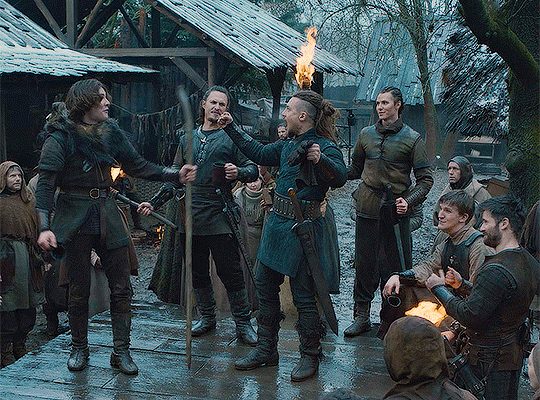

Alfred's Dream of England // Day 1 // Favourite scene Aethelstan. The first king of the English // The Last Kingdom S5E1
Uhtred: You think you're ready to slaughter a beast? Aethelstan: You know I am.
#aethelstan#sihtric#cynlaef#uhtred#harry gilby#arnas fedaravičius#ryan quarmby#alexander dreymon#the last kingdom#the last kingdom gifs#alfredsdream#moonflowergifs#tlkkingdom#thelastkingdomedit#perioddramaedit#perioddramasource#weloveperioddrama#adaptationsdaily#filmtvcentral
185 notes
·
View notes
Text

In his Father's footsteps
Chapters: 20/25
Fandom: The Last Kingdom (TV)
Rating: Explicit
Relationships: Athelstan of England (894-939)/Uhtred Uhtredson | Osbert
Summary: After the Battle of Brunanburh, Uhtred is severely injured. He wants Osbert to look after Aethelstan, but the damage he has caused is not just skin deep. Will Osbert accept an oath to Aethelstan, or has the Young King pushed his subjects a little too far? Will Aethelstan cope without either of his fathers by his side?
OR
The fix-it fic to fix all of the problems that Aethelstan caused in Seven Kings must die.
Rated E for language, graphic depictions of violence, dark themes and shameless smut! Readers please be advised!
Updates: Fortnightly, dependant on schedule :)
Chapter 1 Chapter 2 Chapter 3 Chapter 4 Chapter 5 Chapter 6 Chapter 7 Chapter 8 Chapter 9 Chapter 10 Chapter 11 Chapter 12 Chapter 13 Chapter 14 Chapter 15 Chapter 16 Chapter 17 Chapter 18 Chapter 19 Chapter 20
#My fics#the last kingdom#fics#fanfic#the last kingdom fics#ao3#Aethelbert fics#tlk aethelstan#tlk osbert#aethelstan#osbert#My longest fic yet#Please enjoy!#I'm so glad I finally got this posted here <3
62 notes
·
View notes
Photo

Edward the Elder
Edward the Elder (r. 899-924) was the son of Alfred the Great (r. 871-899) and the King of the Anglo-Saxons in the early 10th century. He is known for his military victories over the Vikings of East Anglia and the East Midlands and for consolidating his dynasty's control over southern England.
In 865, about a decade before Edward was born, the Great Heathen Army invaded England, destroying the royal dynasties of several English kingdoms, including East Anglia, Mercia and Northumbria and establishing Viking rule across these territories. It fell upon Edward's father, King Alfred of Wessex, to lead the English resistance. He defeated the Vikings at the Battle of Edington in 878 and agreed to a peace treaty with their leader, Guthrum (d. 890), who retreated east to rule over much of the territory conquered by the great army, commonly referred to as 'The Danelaw'. Alfred would spend the next two decades fortifying Wessex, reforming the army and promoting learning and literacy amongst his subjects. He also brought Mercia under his overlordship, after which he took the title 'King of the Anglo-Saxons', denoting his rule over both the Mercians and the West Saxons.
Edward succeeded his father in 899. Most of what we know of his reign comes from a collection of land charters and the Anglo-Saxon Chronicle, which presents him as a relentless and successful warrior-king. His epithet, 'the Elder', was not used during his life but was later used to distinguish him from his great-grandson, Edward the Martyr, King of England (r. 975-978). Though well-regarded as a ruler by medieval chroniclers and modern historians, Edward often remains in the shadow of his more illustrious father. However, there has been more interest in Edward recently due to the TV series The Last Kingdom, in which he is portrayed by Timothy Innes. Yet, the show depicts Edward as a king struggling to step out of his father's shadow, with many of his achievements being accredited to the show's protagonist, Uhtred of Bebbanburg.
Early Life
Edward was born c. 874-877. His parents, Alfred and Ealhswith (d. 902), a Mercian noblewoman, were married in 868. In addition to Edward, the couple had four more children: Aethelflaed (d. 918), who married the Ealdorman of Mercia and later ruled Mercia herself; Aethelgifu, who became the Abbess of Shaftesbury; Aelfthryth (d. 929) who married the Count of Flanders and another son, Aethelweard (d. 920). The earliest mention of Edward in contemporary sources comes from Bishop Asser – a Welsh priest and scholar at Alfred's court – in his work the Life of King Alfred. Asser recounts that Edward spent his youth at the king's court, studying religious and secular texts and was taught to show "humbleness, affability, and gentleness towards all." Edward was also trained in warfare, and while still in his teens, led the West Saxon army to victory over the Vikings at the Battle of Farnham in 893. Around the same time, he appears to have become a regular member of the king's council and married a woman named Ecgwynn, of whom we know little about, although the couple had a son, Aethelstan (d. 939), and a daughter, Edith.
In the final years of his father's reign, Edward was granted the title 'rex' (king), suggesting he had been appointed co-king alongside his father or, more likely, was given his own kingdom in Kent to provide him with experience ruling before he succeeded his father. Primogeniture (father-to-son succession) had not firmly been established in Wessex; succession was still elective to a certain degree, with the crown passing to the aetheling (prince), favoured by the nobility. Edward's main rival for the throne was his cousin Aethelwold (d. 902), the son of Alfred's brother, King Aethelred of Wessex (r. 865-871). As much of the West Saxon nobility owed their position to Alfred, they were naturally inclined to support Edward's succession, but his experience in warfare and royal administration went a long way to secure their support.
Continue reading...
26 notes
·
View notes